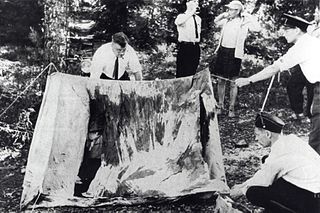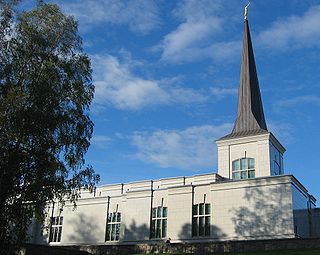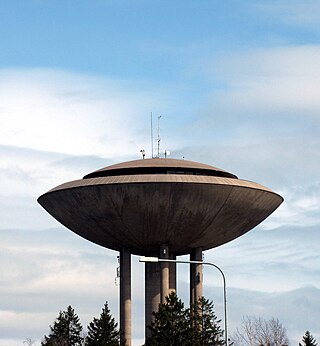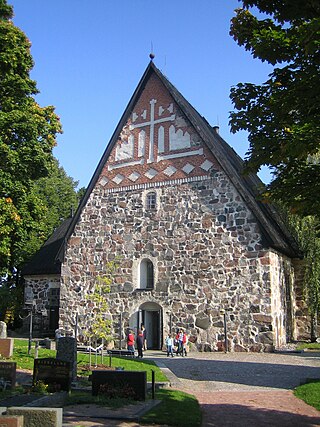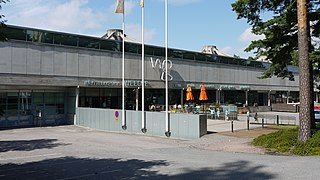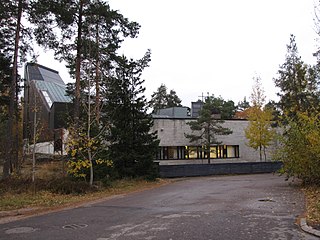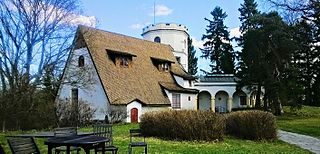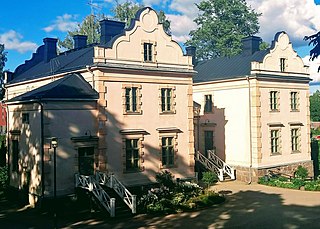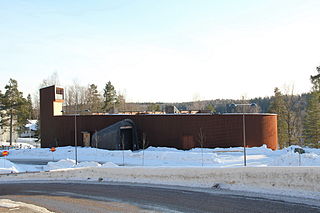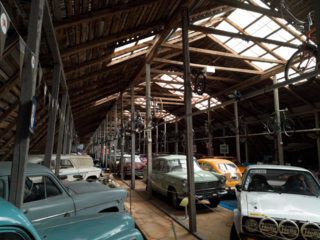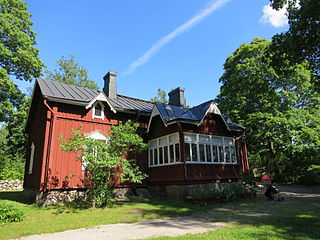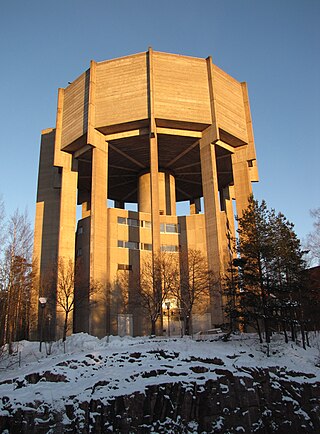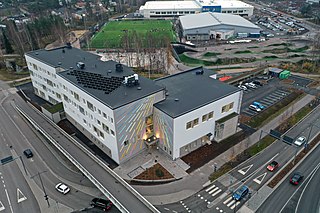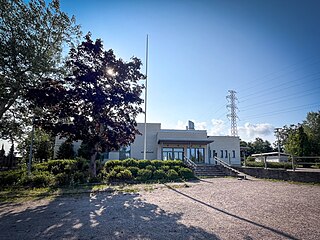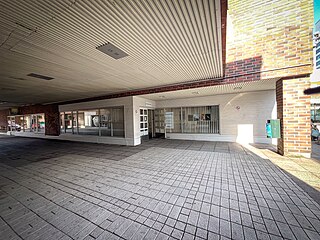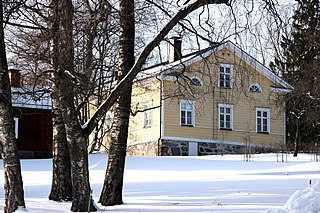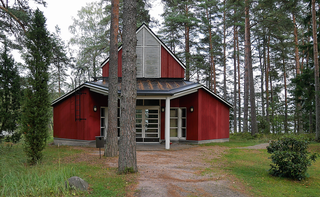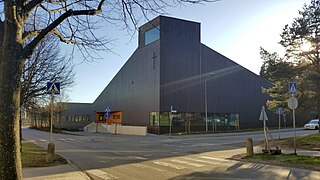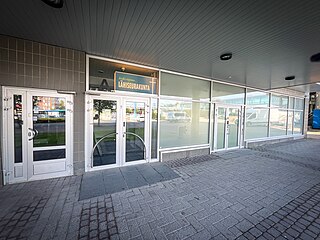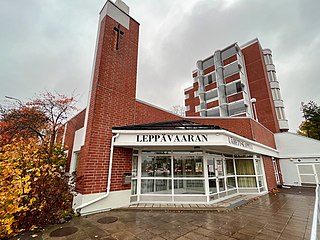21 Sights in Espoo, Finland (with Map and Images)
Legend
Welcome to your journey through the most beautiful sights in Espoo, Finland! Whether you want to discover the city's historical treasures or experience its modern highlights, you'll find everything your heart desires here. Be inspired by our selection and plan your unforgettable adventure in Espoo. Dive into the diversity of this fascinating city and discover everything it has to offer.
Sightseeing Tours in Espoo1. Lake Bodom murders kiosk keeper kiosk
The Lake Bodom murders is one of the most infamous unsolved homicide cases in Finnish criminal history. Sometime between 4:00 a.m. and 6:00 a.m. (EET) on 5 June 1960, at Lake Bodom in Espoo, Uusimaa, Maila Irmeli Björklund and Anja Tuulikki Mäki and Seppo Boisman (18) were killed by stabbing and blunt-force trauma to their heads while sleeping inside a tent. The fourth youth, Nils Gustafsson, then aged 18, was found outside the tent with broken facial bones and stab wounds. Despite extensive investigations, the perpetrator was never identified and various theories on the killer's identity have been presented over the years. Gustafsson was unexpectedly arrested on suspicion of committing the murders in 2004, but he was found not guilty the following year.
2. Helsinki Finland Temple
The Helsinki Finland Temple is the 124th operating temple of the Church of Jesus Christ of Latter-day Saints. Unlike the church's regular meetinghouses, where weekly worship services are held and visitors are welcome, the temple is open only to church members who hold a current temple recommend.
3. Haukilahden vesitorni
The Haukilahti water tower is located in Haukilahti in southern Espoo, Finland. The water tower was built in 1968 and is owned by the Espoo waterworks. The diameter of the tower is 45.3 m and it has two water containers—one inside the other—with a total volume of 4100 m3. The height of the tower is 45.3 m and from sea level 76.3 m.
4. Espoo Cathedral
Espoo Cathedral is a medieval parish church and cathedral in Espoo, Finland. It is the seat of the Evangelical Lutheran Diocese of Espoo, established in 2004. The cathedral is located in the district of Espoon keskus, near the Espoonjoki river. The oldest parts of the church were completed in the 1480s and it is thus the oldest preserved building in the city.
5. EMMA - Espoo Museum of Modern Art
The EMMA – Espoo Museum of Modern Art, is a major art museum in Espoo in southern Finland. After the founding of Espoo Art Museum Foundation in September 2002, EMMA opened its doors for visitors in 2006. With its 5000 square metre exhibition space, it is the largest museum in the whole of Finland. The permanent exhibition presents a selection from The Saastamoinen Foundation Art Collection and the other half the changing domestic and international exhibitions.
6. Espoonlahden kirkko
Espoonlahti Church is a Lutheran church situated in Espoonlahti, Espoo, Finland. It was designed by architects Timo and Tuomo Suomalainen, architects of the Rock Church, who were also members of the Espoonlahti congregation. The groundstone for the church was set in August 1979 and the building was completed in 1980. The organs were built and assembled in 1983. As the number of members in the congregation grew rapidly, additional rooms were soon needed. This new phase of building was completed in 1987, also by the architects Suomalainen.
7. Gallen-Kallela Museum
The Gallen-Kallela Museum, located in Tarvaspää, Espoo, Finland, and built between 1911 and 1913 was a home and studio for Finnish painter Akseli Gallen-Kallela. The atelier building has been a museum since 1961.
8. Albergan kartano
Alberga Manor is a manor located in Leppävaara, Espoo. It is also known as the Sugar Castle because the current main building is partly built from timber used in sugar boxes. The manor is owned by the City of Espoo. Facilities can be rented from the manor for cultural events as well as for celebrations and meetings.
9. The Finnish nature centre Haltia
The Finnish Nature Centre Haltia was opened in May 2013 next to the Solvalla Sports Institute near Nuuksio National Park in the Nuuksio district of Espoo. The centre was built by real estate company Nuuksiokeskus Oy, whose shareholders are Metsähallitus, the City of Espoo and Solvalla Nedre Ab. In addition to Metsähallitus and Solvalla Nedre Ab, the Nature Centre's operations are funded by six nearby municipalities: Espoo, Helsinki, Kauniainen, Kirkkonummi, Vantaa and Vihti. The centre, which presents Finnish nature, reaches both local and long-distance tourists. The Haltia building was designed by architect Rainer Mahlamäki. The Nature Centre received a donation of one million euros from the Jane and Aatos Erkko Foundation.
10. Espoo Car Museum
Espoo Automobile Museum is located in Espoo, north of Lake Bodom, a few kilometers from Ring Road III. It is also called the Pakankylä Car Museum after the name of the village. The museum records Finnish road traffic history, preserves both conserved and restored vehicles and presents them to the public.
11. Glims
Glims Farmstead Museum is a museum located in Espoo, Finland and a branch of the Espoo City Museum. Glims tells about farming culture and rural life in the past centuries. The Glims farm was still a working farm in the beginning of the 20th century and it has been a museum since 1958. The museum area is located next to Jorvi Hospital.
12. Tapiolan kirkko
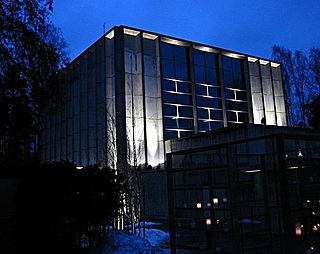
Tapiola Church is a Lutheran church in the Tapiola district of Espoo, Finland. The modernist concrete building in brutalist style was designed by the architect Aarno Ruusuvuori and opened in 1965. The church seats 600 people and is thus the largest in Espoo by capacity.
13. Otaniemen vesitorni
The Otaniemi water tower is a structure designed by the well-known Finnish architect Alvar Aalto in 1971. The water tower is located in Otaniemi area, Espoo, Finland. The total capacity of the tower is 6000 m³. It rises to a height of 45 meters. It is Otaniemi's principal landmark, and consists of two stacked elements - the water storage tank and a free-form, five-story building constructed underneath containing the technical spaces and offices.
14. Espoon vapaaseurakunta
Espoo Free Parish is a free parish in Espoo, Finland. The church was founded in 2002. The head of the congregation is Tero Koskinen. The parish's premises are located in Matinkylän Valotalos. The parish belongs to the Free Church of Finland.
15. Espoon rauhanyhdistys
Espoo Peace Association is a prayer room and activity house located in Vanttila, Espoo. It represents the conservative Laestadian revival movement, whose umbrella organisation is the Central Association of Finnish Peace Societies. The purpose of the Peace Society is to organize spiritual events for all ages.
16. Espoonlahden helluntaiseurakunta
Espoonlahti Pentecostal Church is a Pentecostal church founded in 2007. The parish is located in Kivenlahti, Espoo. The roots of the church lie in the prayer group launched by Espoo Pentecostal Church and Helsinki Pentecostal churches in the 1990s. In addition to church services, church activities include prayer meetings, Bible classes and women's meetings. The leading pastor of the church is Lassi Mäkinen
17. Muuralan pappila
Muurala Vicarage and Pitäjäntupa are located on Espoo Church Hill near Espoo Cathedral in the same yard. The main building of the vicarage is in the Empire style and built on the stone foundation of the older vicarage. The yard includes wings from the turn of the 1700s and 1800s.
18. Matasaaren kappeli
Matasaari Chapel was one of the former premises of Esbo svenska församling. Today, the island is privately owned. The chapel is located in southwestern Espoo. It was part of the three-hectare Matasaari camp centre, which is part of Soukka in Espoo's official district division.
19. Suvelan kappeli
Suvela Chapel is a chapel in Suvela, Espoo, completed in 2016. The chapel was designed by architect Anssi Lassila from OOPEAA Architects. The chapel has a maximum capacity of 270 places with special arrangements.
20. Keski-Espoon Lähiseurakunta
Central Espoo Local Church is a Pentecostal church founded in 2006. The parish is located in Espoon keskus. The roots of the church lie in the prayer group launched by Espoo Pentecostal Church and Helsinki Pentecostal churches in the 1990s. In addition to church services, the activities of the congregation include evenings of word and prayer and the holding of a market café. The pastor of the church is Mertsi Roth.
21. Leppävaaran Lähetyskappeli
Leppävaara Mission Chapel or Leppävaara Pentecostal Church is a Pentecostal church in Leppävaara, Espoo. The mission chapel was founded in 1993. In addition to church services and prayer meetings, parish activities include cell activities, child and youth work, music activities, media work and child work. The parish's premises are located in Vallikallio. The pastor of the church is Vilho Savolainen. The church was attacked with a firebomb in October 2008.
Share
Disclaimer Please be aware of your surroundings and do not enter private property. We are not liable for any damages that occur during the tours.
